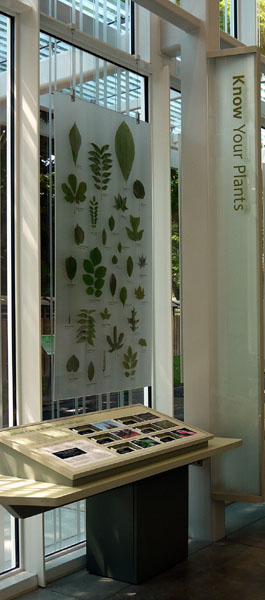
Botanical News
- Giant Pandas Need Old Growth Forests To Raise Cubs
- "Pandas are found in different kinds of forests in China. Old growth forests provide large tree cavities for den sites, but pandas living in forests without these large old trees must use cave dens instead. We studied the microclimates inside these den habitats, and found that tree dens were better at buffering against extremes of temperature and humidity than cave dens—indicating that tree dens provide a more stable microclimate for rearing cubs."
- Why Some Lemur Species Can Adapt To New Forest Habitats And Some Species Cannot
- "The stool samples revealed striking differences. The fruit-eating brown lemurs harbored similar collections of gut microbes regardless of where they lived on the island. But the microbial makeup inside the guts of the leaf-eating sifakas varied from place to place, and in ways that couldn’t be attributed to genetic relatedness between lemur species. Instead, what mattered most was where they lived: Microbes that were common in lemurs living in dry forest were rare or absent in rainforest dwellers, and vice versa.If you look at any one of these fruit-eating species and take away its forest, theoretically it could move next door, The leaf specialists may not be able to."
- Are You A Bold One? Small Mammals' Personalities Shape Forests
- "Another aspect of the project relates to how individuals with different personality types make decisions in front of seeds and how those decisions affect the composition of Maine's forests."
- To Save Monarch Butterflies From Climate Change, Scientists Plant A New Forest Higher On A Mountain
- "The region is warming at such an accelerated pace that the trees won’t be able to adapt, scientists say, and will need help migrating to areas where the climate is predicted to be suitable for them in future years."
- Forests Cleared Of Invasive Shrubs May Heal Themselves
- "Surprisingly, this natural regeneration exceeded the growth of native cover in unmanaged control plots – even those where no invasive shrubs were found."
click here to see past stories
Copyright © 2019 Rob Halpern. All rights reserved.
